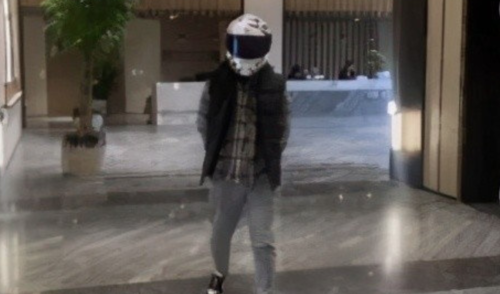Guangzhou Subway considering facial recognition for security checks

This was a scene from the show Prison Break. But it’s also getting closer to reality around us. On July 6, Guangzhou Daily reported that three subway stations in Guangzhou have set up special security gates powered by facial recognition. The system is designed to help passengers get through security checks faster, the developers said.
A test video shows two people passing through the gates in 9 seconds.
While this system has yet to be implemented, developers hope that it can eventually be linked to Guangzhou Subway’s payment system so that subway fees can be automatically deducted after a passenger walks through security.
“(This system) will combine the internet, QR codes, biological identification, and big data analysis to sort passengers into different categories,” a spokesperson for Jiadu Technology, the company that developed the system, told Guangzhou Daily.
“They only confiscate children’s balloons”
However, in spite of the positive spin from the developers and the media, Weibo users and online commenters have expressed general skepticism toward this new feature.
“Waste of money and waste of effort,” one Weibo user said.
Another user added: “Security checks are not the same as ensuring subway security. The Guangzhou subway has been there for 21 years. Only in the last three years have they started doing security checks. Police officers should be the ones responsible for public safety, not the temporary security check staff. It’s time for us to request the system go back to mandatory security checks.”
A related Weibo comment read: “Those security personnel are even shorter than me. I don’t think anyone can rely on their protection.” Another comment suggested that security staff don’t even examine the items thoroughly, and that all they do is confiscate balloons from kids.
Another comment mocked the security staff for not contributing anything to society. “Perhaps the security check is a way to provide employment.”
“Catch that journalist in 7 minutes”
China has been investing heavily on surveillance. According to NPR, facial recognition in China is a big business, and local governments are paying close attention to this trending technology.
China has achieved some progress in adapting facial recognition technology, such as identifying criminals who attend pop concerts and fining jaywalkers. The technology has also been used in a Hangzhou school to monitor students’ classroom behaviors.
However, the technology has created huge privacy concerns and is often viewed as a measure for the Chinese government to target specific people or groups. (Reports say $9 billion was spent on surveillance technology in Xinjiang last year, for instance.) In 2017, a journalist who volunteered for a surveillance challenge was caught by Chinese police in just seven minutes.
Facial recognition technology is also connected with China’s social credit system, which rates its citizens on their loyalties to the party, financial status, and whether they are law-abiding citizens.
“Do I get a seat if I score high on social credit?” one commenter joked about Guangzhou’s proposal.
The Washington Post calls Beijing’s move toward facial recognition an effort to achieve “total surveillance.” It quoted Adrian Zenz, a scholar on China, as saying: “Surveillance technologies are giving the government a sense that it can finally achieve the level of control over people’s lives that it aspires to.”
In 2016, train stations started to use facial recognition software. Here’s a news report showing the system at work at Beijing West Railway Station:
https://www.youtube.com/watch?v=oA4_sLINamA





